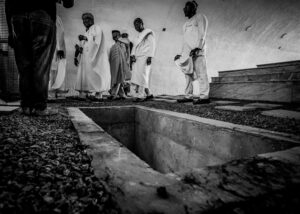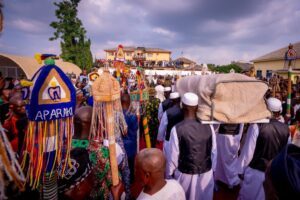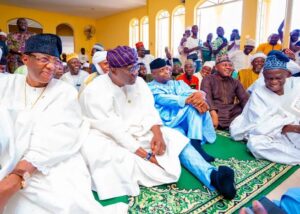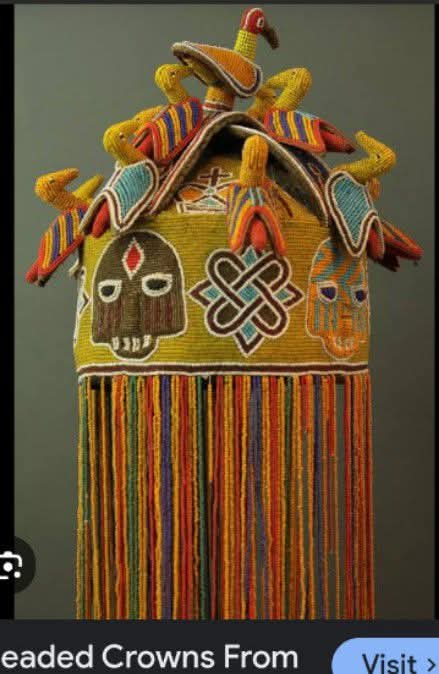By Wale Ojo-Lanre, Esq.
One institution I respect, revere, fear, honour, and adore with every fibre of my being is the ancient and spiritually grounded institution of traditional rulership. Having grown up in the palace of the Timi of Ede, nurtured under the cultural tutelage of the late Oba Adetoyese Laoye — a monarch who adopted me as a son — I developed a deep, personal understanding of what it truly means to be a traditional ruler.
Thus, I fully grasp the weight of the saying: “Uneasy lies the head that wears the crown.”
To be traditionally enthroned is neither a joke nor a ceremonial wish. It is not a social upgrade. It is a spiritual initiation into a sacred order. Tradition is weighty, solemn, and awe-inspiring. That is why the blue blood that courses through royal veins is not injected into just any Ojo, Dada, Aina, or Ilori. It is a divine calling, not a casual status.
This is why I have never stood akimbo before a king. Idobale ni, Sir. And it is also why I have, on principle, declined several offers of chieftaincy titles — whether honorary Otunba or otherwise — because I do not take tradition lightly.


Anyone who is made and crowned a king — having passed through all the traditional processes, rites, and spiritual fortifications — has, from the beginning, willingly agreed to live in complete alignment with tradition. By accepting the throne, he has also accepted the customs surrounding his departure — including being buried according to the rites of the ancestors.
A throne anchored in tradition cannot be divorced from the rites that established it. The institution of traditional rulership is built on ancestral customs that predate colonialism, Christianity, and Islam. It is, therefore, a contradiction — even a cultural betrayal — for any monarch who ascended the throne through traditional means to reject the same tradition in death.
No one is forced to become a traditional ruler. In fact, the competition for royal stools in many Nigerian communities is intense — sometimes vicious. Aspiring monarchs undergo rigorous screening, lineage verification, spiritual rituals, and secret initiations. Some spend fortunes lobbying kingmakers, others file lawsuits, and some even compromise moral lines — all to wear the crown. Why? Because the stool represents not just authority, but spiritual and cultural custodianship.
To accept the crown is to swear — in word, in deed, and often in blood — to uphold the traditions of the land. These traditions include the rites of enthronement and the rites of passage into the ancestral realm. These are not symbolic gestures. They are the sacred pillars upon which the legitimacy of the throne rests.


It is, therefore, morally and culturally indefensible for a traditional ruler — after benefiting from the prestige and sacredness of the throne — to suddenly reject traditional burial on account of modern preferences or religious conviction. That is like changing the rules of a game in the last minute. It is disruptive, dishonourable, and dangerously revisionist.
Take the case of the late Alaafin of Oyo, Oba Lamidi Adeyemi III. Despite being a devout Muslim and a modern intellectual, he submitted himself to the full traditional rites — both in life and in death. He understood that personal beliefs must never override the ancestral obligations of the crown. Similarly, the late Ooni of Ife, Oba Okunade Sijuwade, though a Christian, was also buried according to tradition. These were men who recognized that once you choose the path of tradition, you must follow it to the very end.

Contrast this with growing attempts by some monarchs to be buried in modern cemeteries, abroad, or according to religious doctrines alien to the throne. These acts not only generate confusion and spiritual anxiety within the community, but they also desecrate the throne and threaten the legitimacy of succession. In some places, failure to complete traditional burial rites can stall the appointment of a new king, as the ancestors remain unappeased.
Let it be clear: a traditional ruler is not merely a political figure. He is the living embodiment of the people’s heritage, the intermediary between the living and the dead, the voice of the ancestors. His life — and his death — must reflect the customs he swore to uphold. He cannot pick and choose which parts of the culture to honour and which to discard.
Allowing monarchs to opt for “modern” or “religious” burials opens the floodgates for cultural erosion. What happens when the next Oba insists on a digital coronation via Zoom? Or chooses a corporate suit over royal regalia? Will he preside over traditional festivals with a laptop? This is the absurdity that awaits when we start diluting sacred institutions for personal convenience.

Let me be clear: this is not an attack on religion. Nigeria is a pluralistic society, and every citizen is free to practise their faith. But once you accept the traditional stool, you inherit a spiritual contract that transcends personal belief. You cannot rewrite the script midway, nor change the costume in the final act of the ancestral play.
Consistency is the soul of tradition. The sanctity of the stool lies not just in beads, crowns, and palace architecture, but in the rituals that validate it — especially the rites of transition. Our traditional rulers must remember that their authority is drawn from the very customs they pledged to honour. They cannot take the oath of Ogun and desire to die like a tourist.
Let tradition finish what tradition started.
#ijebuode
#awujale
#counciloftraditionalrulers
#ogunstatecounciloftraditionalrulers
#ogunstategovernment
#OoniofIfe
#ooni
#AlaafinOfOyo
#alaafinoyo
#Lisabi
#EWI
#EwiofAdo
#ojudeoba2025

